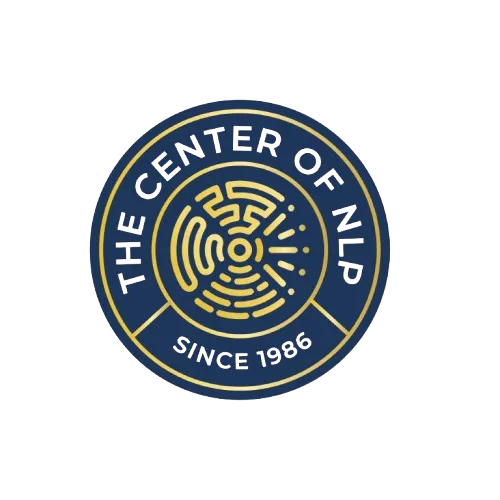
NLP for Chiropractors: Linking Mind and Body
Spinal health and Neuro-Linguistic Programming (NLP) are not directly connected in terms of physiological or anatomical aspects. Spinal health refers to the condition and well-being of the spinal column, which is a crucial part of the musculoskeletal system and plays a significant role in supporting the body's structure and facilitating movement. On the other hand, NLP is a psychological approach that focuses on the relationship between language, thoughts, and behavior and aims to understand and influence human behavior and communication patterns.
However, there may be some indirect connections between spinal health and NLP in terms of the mind-body connection and holistic well-being. NLP emphasizes the importance of the mind-body connection, recognizing that mental states and emotions can affect physical health and vice versa. Similarly, spinal health can impact a person's overall well-being, including their mental and emotional state, as chronic pain or discomfort in the spine can affect a person's mood, energy levels, and quality of life.
NLP Techniques
Furthermore, NLP techniques such as visualization, anchoring, and reframing, which involve the use of language and mental processes to influence behavior and emotions, can potentially be used in managing pain or discomfort related to spinal health issues. For example, NLP techniques may be employed to help individuals reframe their perception of pain, manage stress and anxiety associated with spinal health problems, and enhance their overall coping strategies.
It's important to note that while there may be potential connections between spinal health and NLP in terms of holistic well-being, these connections are not based on direct physiological or anatomical factors. It's always recommended to seek appropriate medical advice from qualified healthcare professionals for any concerns related to spinal health or NLP techniques.
Understanding NLP
Neuro-Linguistic Programming, or NLP, is a powerful methodology for personal and professional growth. It is based on the idea that language, behavior, and thoughts are interconnected and can be used to achieve desired outcomes. NLP techniques can help individuals overcome limiting beliefs, manage stress and anxiety, and improve their communication skills. By understanding how the mind works, NLP practitioners can develop strategies to achieve their goals and unlock their full potential. Whether you are looking to improve your career, relationships, or overall well-being, NLP can help you get there. With its emphasis on personal growth and transformation, NLP is the essential guide to neurolinguistic programming for anyone seeking to create positive change in their lives.
NLP was developed in the 1970s by Richard Bandler and John Grinder, who studied successful therapists and communicators to identify common patterns and strategies for success.
NLP techniques are based on the principles of cognitive psychology, which emphasizes the role of mental processes in behavior.
NLP techniques can be used to achieve a variety of goals, from improving performance in sports or business to overcoming phobias or addiction.
NLP practitioners use a variety of techniques, including visualization, anchoring, and reframing, to help individuals change their patterns of thought and behavior.
NLP is often used in conjunction with other therapies, such as hypnotherapy, coaching, or counseling, to achieve optimal results.
The goal of NLP is to help individuals achieve their desired outcomes by changing their patterns of thought and behavior. This can lead to greater success, happiness, and fulfillment in all areas of life.
NLP has been widely adopted in the fields of business, education, sports, and personal development, and is considered a valuable tool for anyone seeking to improve their performance or achieve their goals.
Working with a Neuro-Linguistic Programming Coach
If you're looking to enhance your NLP skills and achieve your goals, working with a certified neuro-linguistic programming coach can be a valuable investment. In this section, we explore the unique benefits of coaching, including individualized feedback, guidance, and support. A coach can help you identify and overcome obstacles, develop new skills and strategies, and create an actionable plan to achieve your desired outcomes. Learn how coaching can help you unlock your full potential and create lasting change in your personal and professional life.
The Connection between Spinal Health and Linguistic Neuro Programming
Recent studies have shown that there may be a connection between spinal health and Linguistic Neuro Programming. In this section, we examine the latest research on chiropractic care and NLP, and how they can work together to improve overall health and wellness. By combining NLP techniques with chiropractic adjustments, you can reduce pain, improve flexibility and range of motion, and enhance your overall quality of life. Learn how NLP can help you manage stress, increase resilience, and achieve optimal spinal health.
Recent research suggests that there may be a connection between spinal health and Linguistic Neuro Programming. In this section, we explore the latest findings in chiropractic care and NLP, including how they can work together to improve overall health and well-being. Discover how NLP techniques can help you manage pain, reduce stress, and improve your posture, balance, and mobility.
Spinal health is closely connected to the mind-body connection, which is a core principle of Neuro-Linguistic Programming. By understanding the relationship between the mind and the body, NLP practitioners can help individuals achieve optimal spinal health and overall well-being.
Here are some key ways that NLP can improve spinal health:
NLP can help individuals develop positive beliefs and attitudes about their bodies, which can lead to better posture and alignment.
NLP techniques can be used to manage stress and anxiety, which can hurt spinal health.
NLP can improve communication skills, which can help convey information about spinal health to patients.
NLP techniques can be used to overcome negative self-talk and limiting beliefs, which can prevent individuals from taking the necessary steps to improve their spinal health.
NLP practitioners can use visualization techniques to help individuals imagine themselves with optimal spinal health, which can be a powerful motivator for change.
NLP can help individuals develop a greater sense of self-awareness, which can lead to better alignment and movement patterns.
Overall, NLP offers a holistic approach to improving spinal health by addressing the mind-body connection and providing individuals with the tools they need to achieve optimal well-being. By working with a qualified neurolinguistic programming coach, individuals can improve their spinal health and overall quality of life.
Check Out For more:

